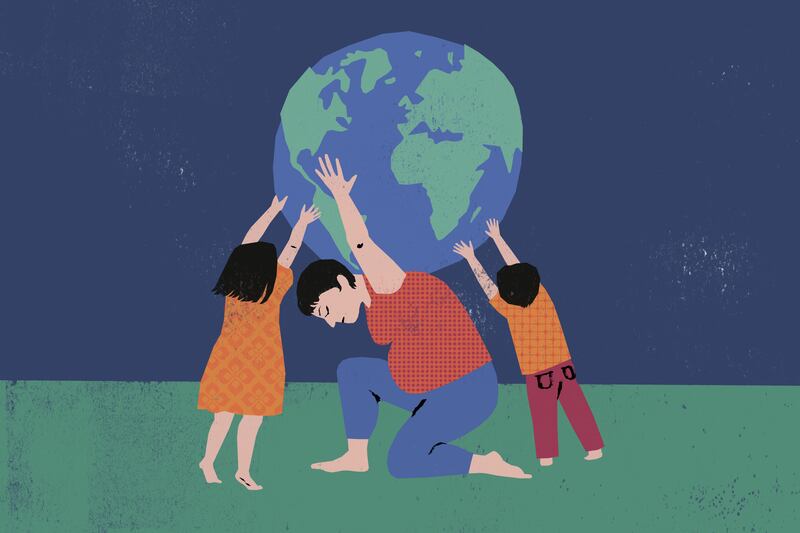Last year a large fight broke out among a group of teenagers in Gloucester, New Jersey. Nine teens were arrested and three police officers were injured. Apparently, residents of the town have had enough. They recently passed the Minors and Parent Responsibility law, which allows parents to be fined and even jailed if their children engage in repeated instances of lawlessness, including drug dealing, assault and even loitering.
Some residents are outraged, while others think this is a perfectly reasonable response to teen behavior that is out of control. But one important question lost in this debate is how we should help parents who think their children’s behavior is a problem, but don’t seem to be able to curb it.
Take Miguel Mendoza, whose 14-year-old son Angel was murdered on a playground in New York City earlier this month. Though the boy was apparently mistaken for someone else involved in a fight earlier in the day, Mendoza acknowledged that his son had fallen in with a bad crowd recently, skipping school, among other things. “I would hide the shoes so he won’t go out, but he’d find a way to go out,” he told the New York Post.
Mendoza also tried to get the authorities involved. “I went to family court, they did nothing,” he said. “I called the police, they said he’s a minor, they can’t do nothing. I went to [the Administration for Children’s Services], they did nothing.” For parents whose kids are exhibiting increasingly delinquent behavior, there are fewer and fewer supports.
The Administration for Children’s Services used to use something called PINS (person in need of services) warrants in such cases. Earlier this year, I interviewed Kevin O’Connor, a 35-year NYPD veteran who retired two years ago, who told me that PINS warrants were effective tools for supporting parents who wanted to get their kids back on the right path.
When, say, a single mother would find herself with a kid who was out of control, ACS would get a warrant. Then police would bring that child in front of a judge who would “put them on notice or mandate services or rules for the child.” The program, says O’Connor, “empowered parents” and allowed them to get their kids under control.
But these days such warrants have fallen out of favor. In the effort to keep adolescents and teens out of what’s been called the “prison pipeline,” schools and law enforcement tolerate many small behavioral infractions. Schools engage in “restorative justice” dialogues instead of giving kids detention or suspending them. It may seem compassionate, but children and their parents often need a wakeup call before behavioral problems spiral out of control.
And once they do, the hands of law enforcement are increasingly tied. A recent change in New York state law actually bars the arrest and prosecution of anyone under 12 for a crime other than homicide. Even when serious assaults are involved, ACS may offer the family services, but they will not take the kids into custody or force the parents to exercise more supervision. Thanks to “raise the age” laws, fewer teens are being taken into juvenile detention, even for serious crimes.
Even when kids are not breaking the law, parents may find their options limited for helping them. It is harder and harder to find a place for kids who are having severe mental and/or behavioral health problems, kids who pose a danger to themselves or others.
In a recent article in City Journal, Christina Buttons chronicles how many residential treatment facilities are shutting down and how even well-run ones are under “critical scrutiny.” The kids who come to these facilities may be “suicidal, psychotic, emotionally dysregulated or involved in violent or criminal behavior.” They may focus “on issues like substance abuse, eating disorders, developmental disabilities or trauma from sex trafficking.” But one complaint can now result in an entire facility closing, leaving families scrambling for any alternative.
As one former resident said of a facility that was recently shuttered in Arizona, it “has helped so many girls … Residential programs are extremely helpful for families who’ve done everything they can.”
Indeed, many parents are caught between a rock and a hard place. They don’t want their kids to break the law or to get hurt themselves. But things have not turned out as they expected. Maybe they didn’t do everything they should have or maybe they did. Regardless, now they want help — from teachers, from law enforcement, from psychiatrists — anyone. But we have turned our backs on them.


